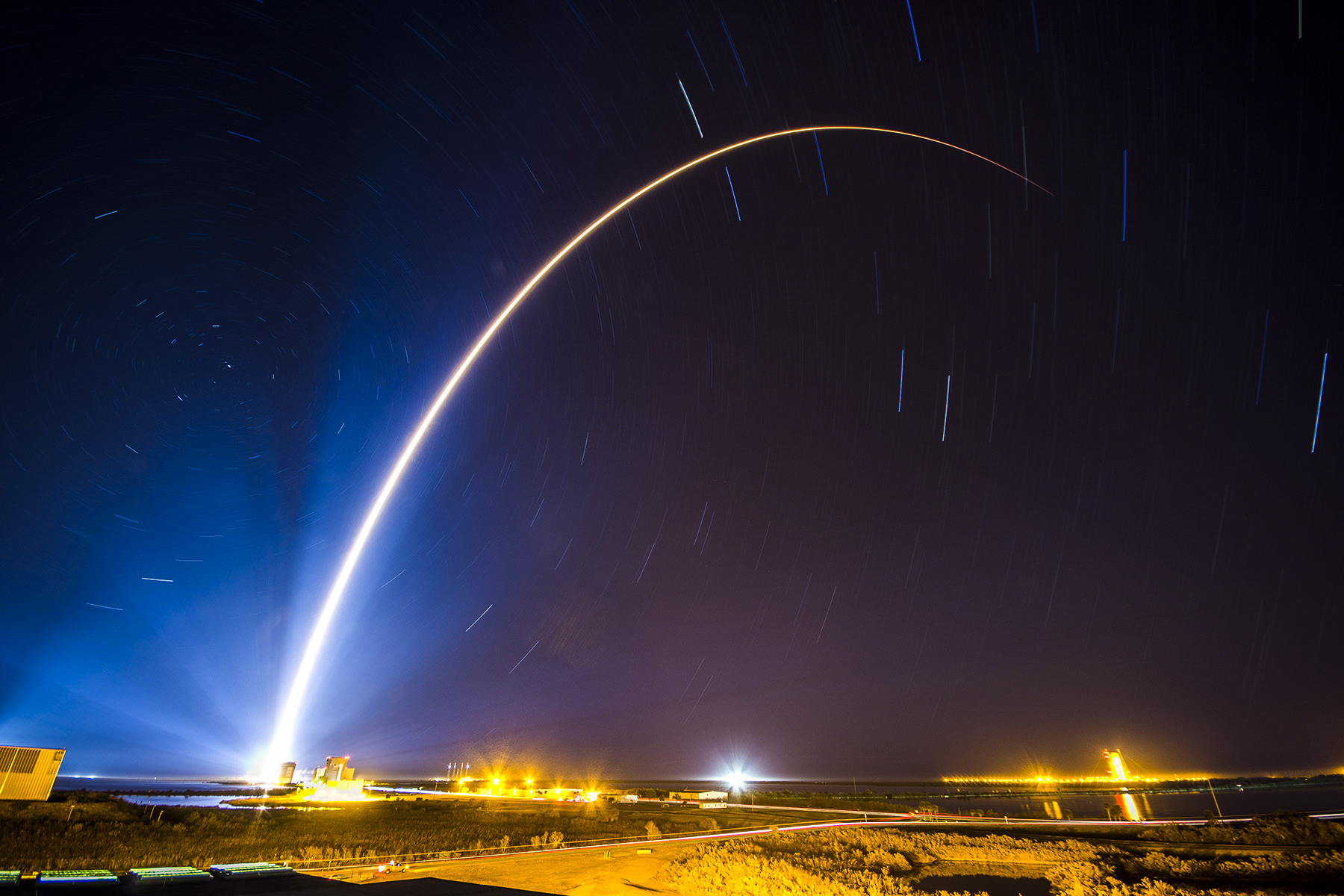The Pentagon wants to launch satellite constellations to track missiles

The Pentagon wants to develop and deploy constellations of satellites that would bolster missile defense systems and other military applications in low Earth orbit.
The news: The Pentagon’s Space Development Agency (SDA), created in March to oversee space-related projects pursued across the US military, is proposing the establishment of a “National Defense Space Architecture,” according to Bloomberg News. The system, which would consist of as many as 1,200 satellites, would create several layers of satellite constellations. These would be used to warn the US military if any countries like China or Russia launched an attack using hypersonic weapons (capable of traveling five times the speed of sound). The Pentagon has asked for $11 billion in a draft budget in part to make this happen.
Watch from above: Current constellations used for such monitoring comprise just a few satellites that reside in high altitudes. The SDA believes a larger network situated in lower orbits will be more reliable at detecting missile threats and faster at beaming communications down to defense systems in the air, on the ground, and at sea. The agency is seeking to have 20 satellites operating by 2022, and a system backbone of 250 satellites operating by 2025. There are still questions as to how the agency intends to launch and install these constellation layers in orbit by 2025, however.
Trending: The proposal comes at a time when many other groups are pursuing satellite constellation systems of their own, such as SpaceX and OneWeb. The SDA's pitch, however, seems to be the first major outline of a large constellation for military purposes. Like other constellation projects, it will likely stoke fears that sending thousands more objects into space will only create more risks of collisions and damage between satellites.
Deep Dive
Space
The search for extraterrestrial life is targeting Jupiter’s icy moon Europa
NASA’s Europa Clipper mission will travel to one of Jupiter's largest moons to look for evidence of conditions that could support life.
How to safely watch and photograph the total solar eclipse
The solar eclipse this Monday, April 8, will be visible to millions. Here’s how to make the most of your experience.
How scientists are using quantum squeezing to push the limits of their sensors
Fuzziness may rule the quantum realm, but it can be manipulated to our advantage.
Stay connected
Get the latest updates from
MIT Technology Review
Discover special offers, top stories, upcoming events, and more.